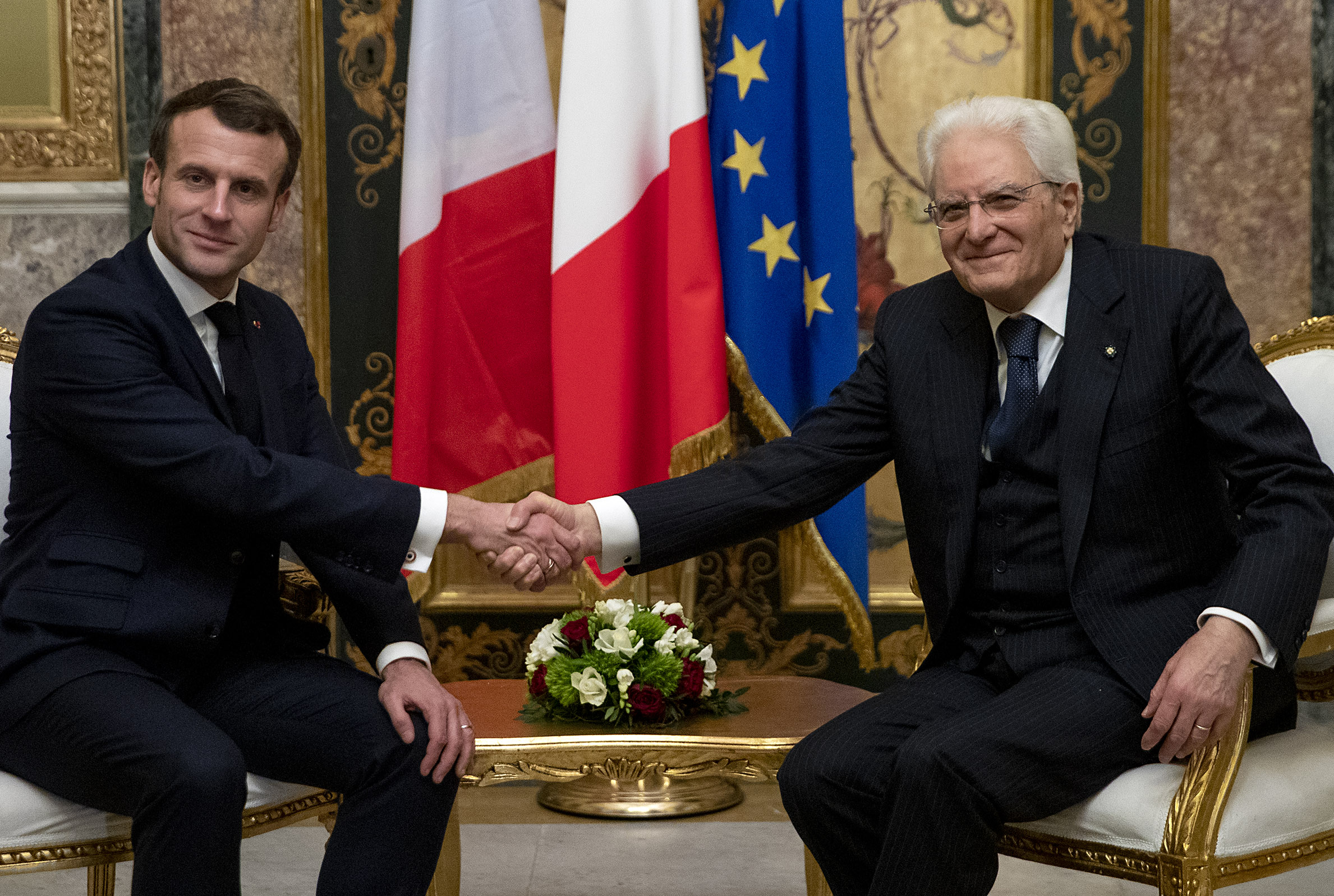Who snorts (and why) on the Italy-France Treaty

Because Sapelli, Pelanda, Borghi (Lega) and La Verità di Belpietro criticize the Italy-France Treaty which should be signed on 25 November. The in-depth analysis of Start Magazine continues after the interviews with Toscano and Darnis in favor of the agreement
An important agreement between Italy and France is expected to be signed on 25 November. The details are not known, but the pact – nicknamed the "Quirinal Treaty": a reference to the Elysée Treaty between France and Germany – would have the ambition to rebalance the power relations within the European Union after the conclusion of the mandate of German Chancellor Angela Merkel.
Up to now, in fact, France and Germany (the so-called "Franco-German engine") have shared the political leadership of the Union and traced its general guidelines: in this sense, the Elysée Treaty, signed in 1963 and updated in 2019, it was crucial.
WHAT WE KNOW ABOUT THE ITALY-FRANCE TREATY
We know little about the Italy-France treaty. We know the general sectors of interest – he wants to promote cooperation on the economy, trade, tourism and culture – and we know that Rome and Paris began discussing them in 2018, when Paolo Gentiloni was prime minister. However, relations worsened a lot with the subsequent Conte I government, led by Giuseppe Conte and supported by the 5 Star Movement and the League: Luigi Di Maio, then deputy premier, distinguished himself for the attacks on the French government. Now, with Mario Draghi, bilateral ties are good again.
An anonymous Italian official revealed to Reuters that French President Emmanuel Macron wants a closer relationship with Italy, and that Italy has an interest in joining the historic partnership between France and Germany.
After interviewing two analysts in favor of the treaty ( Alberto Toscano and Jean-Pierre Darnis ), here are the critical positions raised in Italy by intellectuals and politicians.
SAPELLI: "A SHAME"
The economist and historian Giulio Sapelli calls for caution. Although the signing of a pact with France may be a "right" move, Italy – he explains – should also sign one with Germany, to "find a balance" in Europe. Also because, says Sapelli, "the plan, in the light of the sun" of Paris is to achieve supremacy on the continent.
“Partnership can be good but timing isn't ideal. There are pending industrial issues that should be resolved first, ”says the historian. “From the Leonardo-Oto Melara affair to the negotiation between Vivendi and Kkr in Tim “.
In addition to reservations about the content, Sapelli is very critical of the way in which the Italy-France treaty was negotiated: “a shame. Secreted, removed from the control of Parliament, sewn by private citizens, without the shadow of a public debate. Mattarella should say a word ".
PELANDA: "A SELF-ANNEXION TO FRANCE"
Even more critical of the Quirinal Treaty is Carlo Pelanda , professor of economic geopolitics at the University of Guglielmo Marconi. He claims that the signing of the agreement would sanction "an industrial and strategic self-annexation to France, sweetened but substantial". And this is because between the two sides there is "a palpable and embarrassing asymmetry": "the French technicians show that they know very well what they want", explains the analyst, "while the Italian ones are confused, they try to make counter-proposals that are weak because they lack of perspective ".
According to Pelanda, a bilateral Rome-Paris agreement would further fragment Europe. He believes that Italy should rather seek the involvement of more countries and sign "a treaty of enhanced cooperation on certain lines of EU study" together with France, Germany and Spain, aiming to create a compact group on the climate issue and competition with China.
Pelanda thinks that, in reality, Draghi does not want to sign the treaty with Macron but that he cannot refuse for the "French blackmail on the Italian debt". “I would be very surprised if the pragmatic Draghi made Italy an ascar of France. Above all, not taking into account relations with Germany, which are more important to us ”, he concludes.
THE INTERROGATION OF BORGHI (LEAGUE)
The Northern League deputy Claudio Borghi presented a question to the Chamber on Wednesday precisely on the Quirinal Treaty and on why "the Italian Parliament was not even briefly informed of this event".
WHAT THE TRUTH WRITES ABOUT SPACE
In La Verità , Deputy Director Claudio Antonelli writes that the Italy-France treaty provides for the constellations of orbiting satellites to be "equipped with space radar systems". But the radar – continues the newspaper – is developed by Thales Alenia Space, a joint venture between the French Thales (which owns the majority: 67 percent) and the Italian Leonardo. “In practice, we use PNRR money to finance mostly French companies”, writes the deputy director of the daily founded and directed by Maurizio Belpietro.
The treaty also provides "to delegate to ESA", the European Space Agency, which is based in Paris, "the entire investment package of the Italian PNRR" planned for space. “In practice”, explains Antonelli, “the PNRR funds will be managed directly by ESA and will therefore not pass through Italian legislation”.
This is a machine translation from Italian language of a post published on Start Magazine at the URL https://www.startmag.it/mondo/trattato-italia-francia-reazioni-critiche/ on Sun, 21 Nov 2021 08:15:09 +0000.
